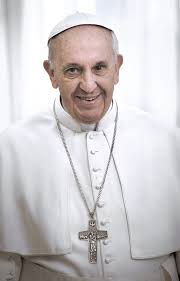This Pope means business
< < Go Back
by Shawn Tully,
The wildly popular Francis is more than a pontiff of the people. He’s an elite manager who’s reforming the Vatican’s troubled finances.
The new pope wanted to talk about money. That was the message that went out to a group of seven prominent financiers—major Catholics all—from around the world in the summer of 2013. Barely five months after the shocking resignation of Pope Benedict XVI, Pope Francis had summoned them to assemble at the seat of holy power, the Vatican. They knew their general assignment: to create a plan to restructure the Vatican’s scandal-plagued finances. And like Catholics everywhere, they knew that Francis had already signaled that he was a new kind of pontiff, a “people’s pope” who championed charity and tolerance over dogma. Still, they didn’t know what to expect when they arrived at the Vatican for a meeting with the pope on the first Saturday in August. How interested was he in finance, really? And how serious was he about changing business as usual inside the Vatican?
A major hint came from a change in tradition upon their arrival: The visitors didn’t report to the Apostolic Palace, the Renaissance showplace where for centuries past popes had received visitors in high style. Instead they entered Vatican City on the other side of the colonnade of St. Peter’s Square and took a 150-yard stroll through the hilly enclave to the new pope’s place of business—Casa Santa Marta, a five-story limestone guesthouse that could be mistaken for a newish hotel. There they were ushered into a nondescript meeting room on the first floor with no paintings or religious ornaments and took their seats around a conference table. The members—including Jean-Baptiste de Franssu, ex-chief of asset-management giant Invesco in Europe; Jochen Messemer, a top executive at ERGO, a large German insurer; and George Yeo, former foreign minister of Singapore—chatted nervously as they waited.
After 15 minutes, Pope Francis entered the room—and got right down to business. Attired in a simple white cassock and plain metal cross, he took his place standing at the head of the table. With little preamble, he began outlining his strategic vision, in an approach described by one participant as “highly managerial.”
After centuries of secrecy and intrigue, it was time to open the books to the faithful.
Francis declared that sound financial management was a pillar of his greatest mission: aiding the poor and underprivileged. That mission was endangered by volatile, unpredictable budgets that careened from modest surpluses to steep deficits. The Vatican’s inept practices had inhibited giving, he explained, and had to stop. “When the administration is fat, it’s unhealthy,” he said. Francis wanted a leaner, more efficient Vatican administration that would be solidly “self-sustaining.” That, he said, would free up more money for his charities. “You are the experts,” the pope said, “and I trust you. Now I want solutions to these problems, and I want them as soon as possible.” With that, Francis left the group to figure out the details.
There was no ambiguity about the job ahead. “The Holy Father’s message was crystal clear: ‘Let us make money to go to the poor,’ …
More From Fortune Magazine:




